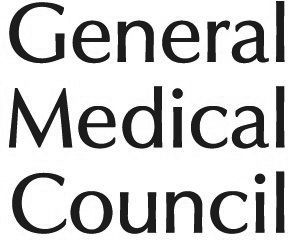Miss Raj Khasriya, Consultant Gynaecologist
Miss Raj Khasriya
Consultant Gynaecologist
Miss Raj Khasriya PhD MRCOG
Consultant Gynaecologist
Miss Raj Khasriya
Consultant Gynaecologist PhD MRCOG

Areas of expertise
- Urinary incontinence
- Uro-gynaecology
- Vaginal prolapse
- Chronic pelvic pain
- Chronic and recurrent UTI


Recommendations for Miss Khasriya
These recommendations are for information purposes only. Doctors providing recommendations do so in good faith and are not responsible for clinical outcomes.






Recommended by:
About Miss Raj Khasriya
Areas of expertise
- Chronic and recurrent UTI
- Chronic pelvic pain
- Lower urinary tract symptom
- Pelvic pain
- Urinary incontinence
- Uro-gynaecology
- Vaginal prolapse
Frequently asked questions
Why do you do what you do?
I wanted to make a difference to the health of women. I could see that obstetrics and gynaecology can span across a woman's life and make a very, very positive change. Often, the first time we see a woman in health care is when it's related to pregnancy, childbirth. Prior to that, very rarely do women come into contact with these health professionals. So, I realised that that's where women are accessing health care.
But then, throughout my training, I also began to understand that, in every decade of a woman's life, their health needs become different. And we have an ageing population. Urogynaecology, in particular, which is my superspecialty, I could really see how there's a lack of understanding about a lot of things that affect almost every woman, like menopause.
Things that affect a lot of women, like prolapse, incontinence and a lot of these mental health problems are taboo almost. So, no one likes to talk about incontinence or prolapse. It's never something that's easy to discuss with a GP or a doctor.
I also began to realise as I got interested in doing research – and my research interest is in urogynaecology – sadly how not only is women's health in general, and then the health of older women, not understood well, but linked with that is that research into women's health is really bad.
If you think that menopause affects every single woman, as an example, we still don't understand the effects of oestrogen and progesterone, for example – female sex hormones – on the immune system, which sounds ridiculous, but we really don't and we know that a lot of diseases are starting to occur in women as they're hitting menopause.
I've done a PhD in urogynaecology and that was particularly looking at chronic and recurrent urinary tract infection in older women and how it presents and how it's missed, and that was a big part of my thesis. I've gone on to carry on research into UTI. More and more, I see women with chronic problems who find access to health care economically difficult, who feel dismissed a lot of the time and whose needs are not met. And I think with an ageing population, this is something that we're going to have to correct quickly.
What are the common symptoms that your patients tend to present with?
The common symptoms are problems with their bladder, things like needing to pee more often than usual, getting up at night and incontinence which is an involuntary leakage of urine.
Prolapse symptoms tend to be a sensation of a lump coming down the vagina and an urgent feeling in the bladder like they just can't hold. So, those are the common symptoms.
Unfortunately, for patients with chronic urinary tract infection, they'll also present with pain. They'll have pelvic pain, bladder pain, vaginal pain.
This is sort of the symptom spectrum of urogynaecology.
What are the treatments that you're able to offer your patients?
Importantly, especially in urogynaecology, I try to think about everything holistically. I think in a treatment strategy or management strategy, you need to think about prevention treatments as well, and then trying to make sure that treatment is almost graded, so that patients have all the treatment options, including the more conservative things like doing some physiotherapy, understanding lifestyle changes that they can make to help with their symptoms, which a lot of us don't actually understand or learn about. And it's very, very common. I think sometimes we need to educate women at school about some of these things. So, more lifestyle changes, things like physiotherapy.
With prolapse and incontinence, you can also then use devices in the vagina which can help to support the vagina, so symptoms of prolapse can abate; considering hormones and their implications in all of their symptoms; and then surgery.
Surgery for incontinence and prolapse is especially specialized. It requires a lot of discussion and understanding in terms of outcome and expectation. I like to sort of allow the patient to decide what they want, what's best for them, and what's best for them at different times in their life. Sometimes it's not to have surgery, sometimes it's to do some of the conservative things.
What are your areas of sub-specialist interest?
Like I said, my subspecialist interest is urogynaecology. That's to do with the pelvic floor, prolapse, incontinence, including the different surgeries for prolapse and incontinence.
My super specialism is in chronic recurrent UTI. I started up a specialist clinic. There’s one in the NHS, which I run at the Whittington Hospital, and it's a tertiary referral centre for UTI. We get referrals with patients who failed other treatments for chronic infection.
I've replicated that and brought it to the Portland Hospital. Essentially, it uses the bespoke protocol that we developed in my research. It's all evidence-based. It treats patients slightly differently. The diagnostics are different from your routine diagnostics that you might get. So, we offer this very specialist service for UTI. It does require a lot of governance and a lot of monitoring of the patients. It's a very successful treatment strategy for those patients who’ve been suffering from recurrent chronic UTI.
Actually, I mostly get patients who end up coming to me having been in the healthcare system with their symptoms for on average six years. So, they've been suffering for a very, very long time. So, that's the super expert area. I’m really pleased that that can be delivered at the Portland with my colleagues. We've got a research scientist who helps us do our urine microscopy. So, it's a very different, bespoke service that has been set up.
Professional memberships
.jpg)

Articles by Miss Raj Khasriya
The clinical implications of bacterial pathogenesis and mucosal immunity in chronic urinary tract infection
Discrediting microscopic pyuria and leucocyte esterase as diagnostic surrogates for infection in patients with lower urinary tract symptoms
Urinary ATP as an indicator of infection and inflammation of the urinary tract in patients with lower urinary tract symptoms
A prospective observational study of urinary cytokines and inflammatory response in patients with Overactive Bladder Syndrome
Spectrum of bacterial colonization associated with urothelial cells from patients with chronic lower urinary tract symptoms
An evidence-based perspective on Lower Urinary Tract Symptoms and telemedicine during the COVID-19 pandemic
The inadequacy of urinary dipstick and microscopy as surrogate markers of urinary tract infection in urological outpatients with lower urinary tract symptoms without acute frequency and dysuria

.jpg?103847954)

.jpg?103847980)



















